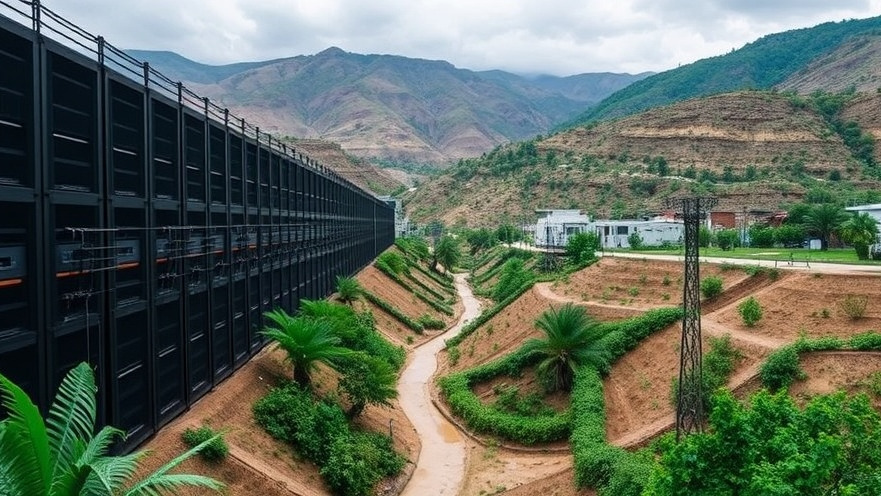
Water Woes: The Dilemma of Datacentres in Drought-Prone Areas
In recent years, as the demand for artificial intelligence (AI) has skyrocketed, the need for vast supercomputing facilities has also surged. However, this tech boom comes with a significant downside: enormous strains on water resources, particularly in regions already grappling with drought. Take Brazil, for instance. Companies like TikTok, a Chinese social media giant, are planning to construct massive datacentres in places like Caucaia, attracting attention due to their potential to cool supercomputers while further stressing limited water supplies.
Understanding the Tech Boom's Impact
Why is this relevant to AI enthusiasts and tech developers? The ongoing expansion of AI technology relies heavily on data storage and processing, which is why datacentres are increasingly becoming focal points of technological development. The construction of these facilities is often accompanied by promises of job creation and economic growth; yet, the environmental consequences prompt deeper reflection. In Caucaia, where water scarcity has led to states of emergency for 16 out of 21 years from 2003 to 2024, the juxtaposition of tech expansion and resource depletion raises alarming questions about sustainability.
A Lesson in Resource Management
It's essential to acknowledge the reality that datacentres are notoriously power-hungry and water-intensive. Operators often require substantial amounts of water for cooling systems to maintain optimal functioning of the supercomputers. The case of Caucaia illustrates a broader issue where critical technological infrastructures come at a severe environmental cost. This situation presents an opportunity—how about investing in advanced AI that could optimize water usage and develop strategies for better resource management?
Thinking Critically: What Does This Mean for the Future?
The future of AI and datacentre construction doesn’t have to repeat the mistakes of the past. As responsible innovators and technologists, understanding AI principles also involves considering ethical implications. Are we contributing to technological advancements that can coexist with natural resources? As tech hubs across the globe, including Silicon Valley and Berlin, push boundaries in AI development, the conversation must shift toward sustainability and responsible tech.
Now is the time for those in the industry to advocate for solutions that harmonize advancements with ecological preservation. The way forward lies in implementing AI principles not just to drive growth, but to ensure environmental viability. Embracing sustainable practices will not only help mitigate risks but can also unlock new opportunities for innovation. Will tech giants step up?
 Add Row
Add Row  Add
Add 




 Add Row
Add Row  Add
Add 



Write A Comment